The 2024 election results have ushered in a new era of governance for South Africa. For the first time in 30 years, the African National Congress (ANC) no longer holds a majority. This development meant that it was faced with tough choices to assemble a government to take the county forward.
In discussion documents circulated internally within the ANC ahead of the decision to establish a Government of National Unity (GNU), the ANC debated a grand coalition. The options involved the Democratic Alliance (DA) only or a coalition with the Economic Freedom Fighters (EFF) and MK Party. Both choices were seen as pigeonholing the ANC; either on the extreme left or the extreme right. Eventually, a decision to establish a GNU was seen as the happy medium that would seek to unite South Africa.
When announcing the GNU, President Cyril Ramaphosa emphasised that this was a national project of collaboration. To find out more, BBQ Editor Prof Onkgopotse JJ Tabane put critical questions to the President of the Republic of South Africa to understand his vision for leading the country in this new era.
The President on the GNU in his own words
Please clarify how you arrived at the solution of the GNU as opposed to the other options that were presented to you. Also, clarify whether the negotiations with the DA started only after the elections or was it always and option?
The decision to invite all parties to join a Government of National Unity was taken at the meeting of the ANC National Executive Committee on 6 June 2024. The NEC looked at several different scenarios for setting up government, as the ANC could not set up a government without cooperating with others. The ANC did not mandate any negotiations with any political party prior to the elections. A task team was established to engage with other parties following the announcement of the election results.
Given the current dispensation of South Africa, do you think the country has propensity to survive a government where no one political party emerges with a majority?
From the election results, it is clear that South Africans expect their leaders to work together to meet their needs. They expect us to find common ground, to overcome our differences, and to act and work together for the good of everyone.
We are committed to ensuring that a Government of National Unity has the means and the ability to build an inclusive economy, create jobs, end corruption, tackle crime and improve the provision of services. In establishing a Government of National Unity, we are building on a rich history of cooperation across divides of politics and ideology.
What was the rational for expanding the cabinet size, instead of allocating and accommodating the GNU partners within the available size of the 6th administration?
In the course of the sixth democratic administration, we indicated our intention to reduce the number of portfolios in the National Executive. However, due to the need to ensure that the National Executive is inclusive of all the parties to the Government of National Unity, this has not been possible. We have had to consider how to form the new government in a manner that advances the national interest, that gives due consideration to the outcome of the election and that makes use of the respective capabilities within each of the parties.
Why was Manamela overlooked at Higher Education when the logical thing would have been to promote him and allocate the new Minister as deputy? What was the rationale of making serving ministers deputies? Will this not distract the new ministers with a danger to overshadow them?
As indicated above, there are several factors that determine the composition of the National Executive. The Constitution grants the President the prerogative to appoint members of cabinet and assign duties to them. Every member of the national executive is expected to perform to the best of their ability working together with their colleagues.
Is the GNU statement of intent applicable across all provinces where the ANC did not obtain a majority, or is it dependent on the discretion of the provincial leadership?
The Statement of Intent applies to the National Executive and Parliament. The establishment of Government of National Unity has helped to inspire the spirit of cooperation amongst political parties across government.
Do you feel voters were adequately educated leading up to elections given the challenges faced in the 2024 elections?
From the first democratic election in 1994, South Africans have demonstrated high levels of understanding of the electoral process. The Independent Electoral Commission did its very best to ensure adequate voter education in the period leading to the elections. Political parties and various NGOs also played their part in this regard.
Consultation? Mr President, how do we strengthen public participation in the formation of government?
Voters participated in the process of forming a government of national unity through their votes for parties to represent them. Together, the parties that form the GNU represent around 70% of voters. An important task going forward is to ensure more people who are registered to vote do actually vote. This is a task for all parties and all sections of society who want to strengthen democracy.
Can you assure South Africans that the formation of government takes their needs into consideration and is not about jostling for positions?
The formation of the government and the programme it will undertake is informed by the priorities the parties agreed to in the Statement of Intent. These include a commitment to pursue rapid, inclusive and sustainable economic growth; create a more just society by tackling poverty; safeguard the rights of workers; and stabilise government and to build state capacity.
The parties have also made a commitment to invest in South Africa’s people through quality education and health care; address crime and corruption; strengthen social cohesion and build a united nation; and, pursue a foreign policy based on human rights, solidarity and peace.
What accountability measures are you going to put in place in order to ensure that this newly formulated government is held to the highest standard of accountability that will deal decisively with elements of corruption that have mired our democracy over the past administrations?
At the onset of the 6th administration the first undertaking we made was to capacitate and strengthen our law enforcement agencies and the National Prosecuting Authority in the fight against corruption. During the course of the 6th administration we have successfully rebuilt the institutions that were de-capacitated during the state capture era.
Recently, we signed into law the National Prosecuting Authority Amendment Bill which establishes an Investigating Directorate against Corruption as a permanent entity within the NPA. Our law enforcement agencies have proved equal to the task of dealing with corruption related cases and will continue to do so.
Lastly, the different political ideologies that emerged in the run up to elections, revealed the magnitude of work required to reconcile the country. What steps are you and your government going to take to foster much needed national unity to advance the national agenda?
The expression of different political ideologies in the run up to elections is part of free political speech, which is a feature of our robust constitutional democracy. As we have indicated that in the spirit of partnership and collaboration, the incoming government will work together with other formations to convene a National Dialogue.
Through this National Dialogue, all parties, civil society groups, labour, business and other stakeholders will be invited to work together to address the critical challenges facing the nation.
We have made a call to all South Africans to participate in the National Dialogue and to give their support to this Government of National Unity as it begins its work.
Prof. JJ Tabane is the Editor of Leadership magazine
We are committed to ensuring that a Government of National Unity has the means and the ability to build an inclusive economy, create jobs, end corruption, tackle crime and improve the provision of services.
President Cyril Ramaphosa’s Cabinet Announcement
Sunday, 30 June 2024
Just over a month ago, on the 29th of May, the people of South Africa voted in a watershed election.
In casting their votes, the people made it clear that they expect political parties to work together to deliver on a mandate of transformation, growth, and renewal.
To give effect to this mandate, it was agreed that a Government of National Unity, which brings together parties from across the political spectrum, should be formed. This Government of National Unity would be bound by certain fundamental principles and would undertake a basic minimum programme of priorities.
Following discussions over the course of the last few weeks, a total of eleven parties have elected to work together in government and in Parliament.
These are the African National Congress, Democratic Alliance, Patriotic Alliance, Inkatha Freedom Party, Good Party, Pan Africanist Congress of Azania, Freedom Front Plus, United Democratic Movement, Al Jama-ah, Rise Mzansi, and the United Africans Transformation.
The partnership between the GNU parties is guided by a Statement of Intent, which outlines fundamental principles and a minimum programme of priorities. All the parties have made a commitment to respect the Constitution and to promote accountable and transparent governance, evidence-based policy and decision-making, the professionalisation of the public service, integrity, and good governance.
The incoming government will prioritise rapid, inclusive, and sustainable economic growth and the creation of a more just society by tackling poverty and inequality.
The establishment of the Government of National Unity in its current form is unprecedented in the history of our democracy.
We have had to consider how to form the new government in a manner that advances the national interest, that gives due consideration to the outcome of the election, and that makes use of the respective capabilities within each of the parties.
We have had to consider not only the immediate needs of the country. We have also had to consider the stability, effectiveness, and durability of the government we are establishing.
It is true that some South Africans have expressed concern about the length of time it has taken to form a government.
As the discussions have unfolded, they have been worried about the effect of a protracted process on confidence and stability.
At the same time, many people have pointed to the experiences of other countries that have a far longer history of democracy, where the formation of multi-party governments have sometimes taken several months. As a relatively young democracy, we should be proud that we have moved to establish a government comprised of eleven parties within such a short space of time.
Through our discussions we have been able to build consensus on the tasks of government. We have shown that there are no problems that are too difficult or too intractable that they cannot be solved through dialogue.
This evening, I am pleased to announce the members of the National Executive who will bear collective responsibility to give effect to the will of the electorate.
In forming the National Executive, we have had to consider several factors and advance a number of key principles.
We have had to ensure that the incoming government will be effective, and that it will have people with the experience, skills, and capabilities to deliver on its mandate.
It is important that we deploy into positions of responsibility people who are committed, capable, and hard-working, and who have integrity.
We have had to ensure that all the parties are able to participate meaningfully in the National Executive and that the diversity of the views of South Africans is properly reflected.
We have sought to ensure that the National Executive is representative of the people of South Africa, giving due consideration to gender, youth, demographics, and regional distribution.
We want South Africans to see themselves reflected not only in the composition of government, but also in its policies and programmes. Given the challenges that the country faces today and considering the electoral mandate this government must implement, I have decided to make certain changes to the national government portfolios.
During the sixth democratic administration, we indicated our intention to reduce the number of portfolios in the National Executive. However, due to the need to ensure that the National Executive is inclusive of all the parties to the Government of National Unity, this has not been possible.
In some instances, we have considered it necessary to separate certain portfolios to ensure that there is sufficient focus on key issues. The ministries of Electricity and Energy will be merged.
There will be a separate ministry of Mineral and Petroleum Resources.
The ministry of Agriculture will be separated from the ministry of Land Reform and Rural Development.
The ministry of Higher Education will be separated from the ministry of Science, Technology, and Innovation.
The ministry of Justice and Constitutional Development will be separated from the ministry of Correctional Services.
There will no longer be a Ministry of Public Enterprises. The coordination of the relevant public enterprises will be located in the Presidency during the process of implementing a new shareholder model.
DA statement on the GNU by John Steenhuisen

After almost a month of intensive negotiations, the Democratic Alliance (DA) is proud to announce that we have agreed to a deal to be part of the Government of National Unity (GNU) to enact the will of the South African people delivered through an historic and decisive General Election on 29 May 2024.
The message delivered from the South African electorate has been heard loud and clear. No political party achieved an outright majority, and citizens want politicians to cast aside their differences and work together for the benefit of the people.
The DA is proud to rise to the challenge, and take our place, for the very first time, at the seat of national government where we can introduce our track record of governance excellence, zero tolerance for corruption, and pragmatic policymaking based on outcome and not intent. The mission to create an open, opportunity society for all South Africans now becomes our sole focus as we work the levers of the highest level of government in our country.
The formulation of the DA’s National Executive Member offering takes into consideration skills and expertise, qualifications and experience, and diversity, while ensuring that our parliamentary caucus retains key members to exercise oversight over all national departments. I am proud to announce the 12 Cabinet and Deputy Ministers as follows:
Cabinet Ministers
- Minister of Agriculture – John Steenhuisen
- Minister of Basic Education – Siviwe Gwarube
- Minister of Public Works and Infrastructure – Dean Macpherson
- Minister of Home Affairs – Dr Leon Schreiber
- Minister of Forestry, Fisheries and the Environment – Dr Dion George
- Minister of Communications and Digital Technologies – Solly Malatsi
Deputy Ministers
- Deputy Minister of Finance – Ashor Sarupen
- Deputy Minister of Energy and Electricity – Samantha Graham-Maré
- Deputy Minister of Small Business Development – Jane Sithole
- Deputy Minister of Higher Education – Dr Mimmy Gondwe
- Deputy Minister of Trade, Industry and Competition – Andrew Whitfield
- Deputy Minister of Water and Sanitation – Sello Seitlholo
It will be the single most important task for this cabinet in the coming five-year term to make a meaningful difference in the lives of all South Africans, and to tap into South Africa’s limitless potential as one of the brightest and most resilient democracies in the world.
We look forward to being part of a new era in South Africa’s democratic journey, and to bringing real and tangible change to the millions of citizens who voted for it. As we embark upon this new chapter for South Africa, the DA looks forward to playing its part in ensuring South Africa’s ultimate success and prosperity.
Statement of intent of the 2024 Government of National Unity
- South Africa has made strides since 1994 toward establishing a non-racial, non-sexist, united, and democratic society and improving the lives of all who live in it. We are building a democratic state guided by a progressive Constitution and a system of institutions that aim to translate the values of the Constitution into practice.
- The 2024 national and provincial election was highly contested and, at times, divisive. The results of the election have the potential to foment further political and social fragmentation. Relatively low levels of voter turnout and registration suggest growing alienation from the political system.
- At this historic juncture, we must act to ensure stability and peace, tackling the triple challenges of poverty, unemployment, and inequality, entrench our Constitutional democracy and the rule of law, and to build a South Africa for all its people.
- The people of South Africa expect us to work together as political parties to achieve these objectives, and to usher in a new era of peace, justice and prosperity for all.
- It is in this context that we, as Political Parties, that participated in the 2024 Elections and received seats in the national and provincial legislatures, pledge to cooperate through a voluntary Government of National Unity (GNU).
- The GNU2024 shall include cooperation in both the Executive and the Legislature.
- The parties reaffirm our collective commitment to the founding values of the Constitution and to the preamble to the Constitution, which reads: “We, the people of South Africa. Recognize the injustices of our past.Honour those who suffered for justice and freedom in our land. Respect those who have worked to build and develop our country, and Believe that South Africa belongs to all who live in it, united in our diversity. We therefore, through our freely elected representatives, adopt this Constitution as the supreme law of the Republic…”
Foundational principles of the GNU
All parties to the GNU commit to uphold the following fundamental principles:
- Respect for the Constitution, the Bill of Rights in its entirety, a united South Africa and the rule of law.
- Non-racialism and non-sexism.
- Social justice, redress, and equity, and the alleviation of poverty.
- Human dignity and the progressive realisation of socio-economic rights.
- Nation-building, social cohesion, and unity in diversity.
- Peace, stability, and safe communities, especially for women and children.
- Accountability, transparency, and community participation in government.
- Evidence-based policy and decision-making.
- A professional, merit-based, non-partisan, developmental public service that puts people first.
- Integrity, good governance and accountable leadership.
All parties that form part of the GNU commit to these principles. The GNU is constituted in the interest of all South Africans. This Statement of Intent will therefore be a public document to ensure accountability and foster trust between the electorate and the political parties that form part of the GNU.
Basic minimum programme of priorities
As Parties to this GNU, we agree that the 7th administration should focus on the following priorities:
- Rapid, inclusive, and sustainable economic growth, the promotion of fixed capital investment and industrialization, job creation, transformation, livelihood support, land reform, infrastructure development, structural reforms and transformational change, fiscal sustainability, and the sustainable use of our national resources and endowments. Macro-economic management must support national development goals in a sustainable manner.
- Creating a more just society by tackling poverty, spatial inequalities, food security, and the high cost of living, providing a social safety net, improving access to and the quality of basic services, and protecting workers’ rights.
- Stabilising local government, effective cooperative governance, the assignment of appropriate responsibilities to different spheres of government and review of the role of traditional leadership in the governance framework.
- Investing in people through education, skills development, and affordable quality health care.
- Building state capacity and creating a professional, merit-based, corruption-free, and developmental public service. Restructuring and improving state-owned entities to meet national development goals.
- Strengthening law enforcement agencies to address crime, corruption, and gender-based violence, as well as strengthening national security capabilities.
- Strengthening the effectiveness of Parliament in respect of its legislative and oversight functions.
- Strengthening social cohesion, nation-building and democratic participation, and undertaking common programmes against racism, sexism, tribalism, and other forms of intolerance.
- Foreign policy based on human rights, constitutionalism, the national interest, solidarity, peaceful resolution of conflicts, to achieve the African Agenda 2063, South-South, North-South and African cooperation, multilateralism and a just, peaceful and equitable world.
Parties commit to an all-inclusive National Dialogue process—with parties, civil society, labour, business, and other sectors—to discuss these and other critical challenges facing the nation. The National Dialogue process will seek to develop a national social compact that enables the country to meet the aspirations of the National Development Plan. The parties to this GNU Statement of Intent shall, following the formation of the GNU, hold a Lekgotla (Strategy Session) to develop an agreed policy agenda, which shall include policy priorities for the GNU.
Modalities of the Government of National Unity
Parties will work together in good faith and seek to build consensus on the formation of a government where no party has an outright majority, on the basis of the above shared values and minimum programme, and in the interest of all South Africa’s people.
Parties will cooperate with each other in respect of the executive and/or legislature activities to advance these shared goals.
- The Government of National Unity shall be constituted in a manner that reflects genuine inclusiveness of political parties that are party to this Statement of Intent and are represented in the National Assembly broadly taking into account the number of seats parties have in the National Assembly and the need to advance the National Interest. The President shall in constituting the Executive, take into account the electoral outcomes.
- Whilst recognising the President’s prerogative to appoint Members of the Executive, such appointments should be done in consultation with the Leaders of the respective Parties of the Members considered for appointment.
- The GNU shall take decisions in accordance with the established practice of consensus. Where no consensus is possible, the principle of sufficient consensus shall apply.
- Sufficient consensus exists when;
a. All parties have had the opportunity to express their views;
b. Despite reasonable attempts to resolve disagreements, and find common ground, there is no general consensus;
c. Parties to the GNU representing 60% of seats in the National Assembly agree; and
d. Any party that disagrees has been able to formally record their objections. - The Parties to the GNU shall also establish dispute resolution or deadlock breaking mechanisms, in instances where sufficient consensus is not reached. Parties should raise disputes within the mechanisms created for this purpose.
- The parties recognise established Government and Cabinet protocols in decision-making and the formulation of the Budget.
- This GNU Statement of Intent and Modalities may guide approaches to provincial government in the interests of effective, stable and responsive governance which meet the needs of the people in a province.
- Parties to this agreement will form a GNU Consultations Council that will be responsible for consultations and monitoring progress on the minimum programme of the Government of National Unity, and alignment of the 7th administration’s programme, its resourcing and implementation mechanisms.
- In keeping with the spirit of an inclusive GNU, it is agreed that the composition shall be discussed and agreed amongst the existing parties, whenever new parties desire to be part of the GNU.
- Amendments to this document must be agreed to by sufficient consensus.
South Africa’s New Cabinet Ministers

Mzwanele Nyhontso of the Pan Africanist Congress of Azania (PAC) is 55 years of age and holds a bachelor’s degree in political science. Minister Nyhontso is a long time member of the PAC and has been actively involved in land reform advocacy. He has also served as the President of the PAC and has focused on policies promoting equitable land redistribution.

Siviwe Gwarube from the Democratic Alliance is 34 years of age. She has honours in political science and government. Gwarube is known for her work as a DA spokesperson and efforts to improve the public education standards of South Africa. She has a background in communications and public policy.

Solly Malatsi of the Democratic Alliance is 38 years old and holds an honours in political science. Malatsi has a strong background in political education and has worked extensively on digital transformation projects within the DA.

Velenkosini Hlabisa of the Inkata Freedom Party is 59 years of age and holds an honours in history. Hlabisa has served in various leadership roles within the IFP and has a track record of working on governance and traditional leadership issues.
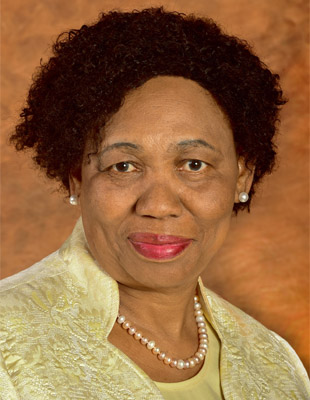
Angie Motshekga of the African National Congress is 67 years of age and holds a master’s degree in education. Motshekga has been the Minister of Basic Education since 2009 and has played a key role in South Africa’s education reforms.

Kgosientsho Ramokgopa of the African National Congress is 49 years of age and holds a PhD in public affairs. He has extensive experience in municipal governance and infrastructure development, and has previously served as the Mayor of Tshwane and has been involved in various energy projects.
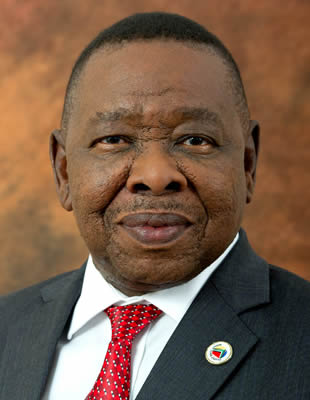
Blade Nzimande of the South African Communist Party aligned with the ANC is 65 years of age and holds a PhD in sociology. Nzimande has been a key figure in higher education and research, previously serving as the Minister of Higher Education, Science, and Technology.
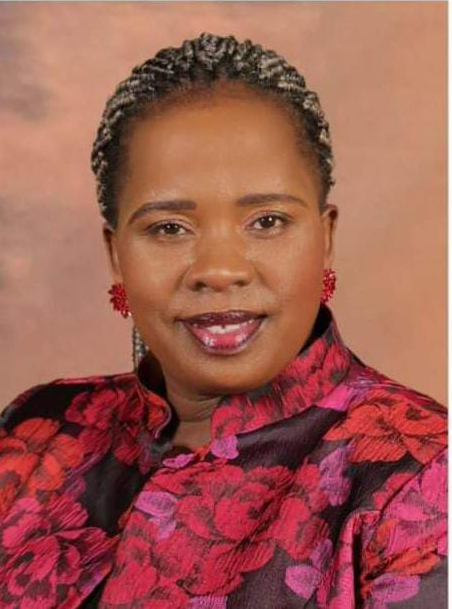
Nomakhosazana Meth of the African National Congress is 51 years of age and holds an honours in public administration. Meth has served in various governmental roles focused on social development and labour issues, with a strong emphasis on employment policies and labour rights.

Dion George of the Democratic Alliance is 55 years of age and holds a PhD in business leadership. Dr George has been a DA MP focused on economic and environmental issues, bringing expertise in sustainable development and environmental policy.

Aaron Motsoaledi of the African National Congress is 64 years of age and holds an MB Ch B from the University of Natal. Dr Motsoaledi has a long history in public health as Minister of Health before taking on the role of Minister of Home Affairs. He has been instrumental in health care reforms and immigration policy.
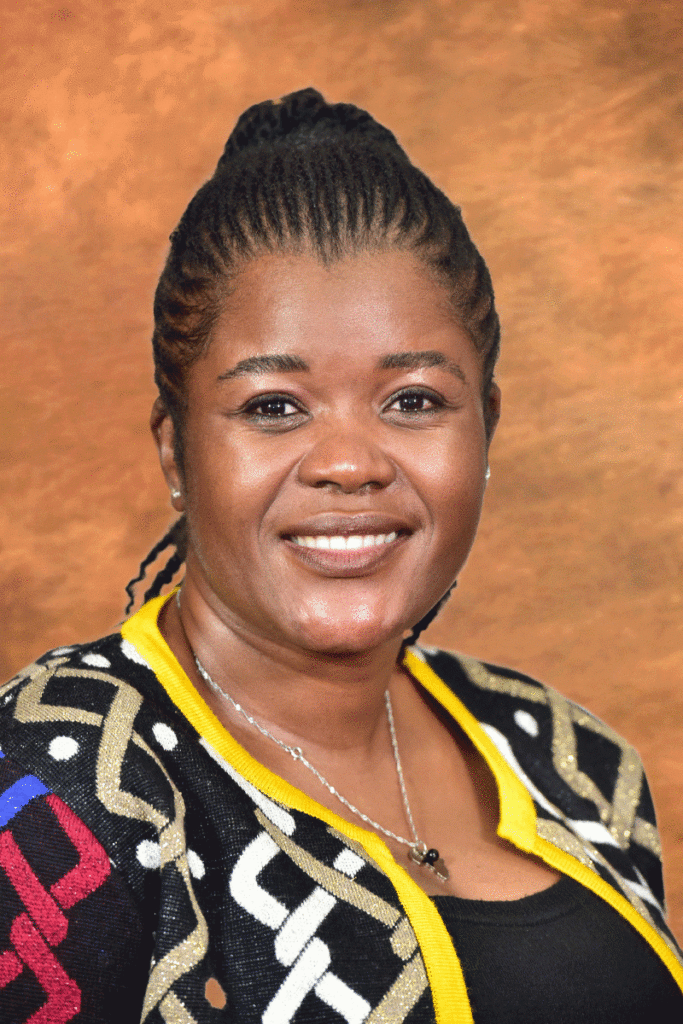
Nobuhle Nkabane of the African National Congress is 45 years of age and holds a PhD in educational policy. Dr Nkabane has a background in educational research and policy making. She has previously worked on various educational initiatives aligned with improving higher education in South Africa.

Leon Schreiber of the Democratic Alliance is 38 years of age and he holds a PhD in political science. Dr Schreiber is known for his work on governance and public administration, serving as the DA MP and focusing on issues related to public sector reform and efficiency.

Mmamoloko “Nkhensani” Kubayi of the African National Congress is 45 years of age and holds an MBA. Kubayi has held various ministerial roles, including Minister of Science and Technology, and has been involved in improving Housing and Urban development.

Ronald Lamola of the African National Congress is 41 years of age and holds an LP and a masters in corporate law. Lamola is a lawyer by training and has been involved in various legal and political roles. He is known for his efforts in judicial reform and improving the criminal justice system.
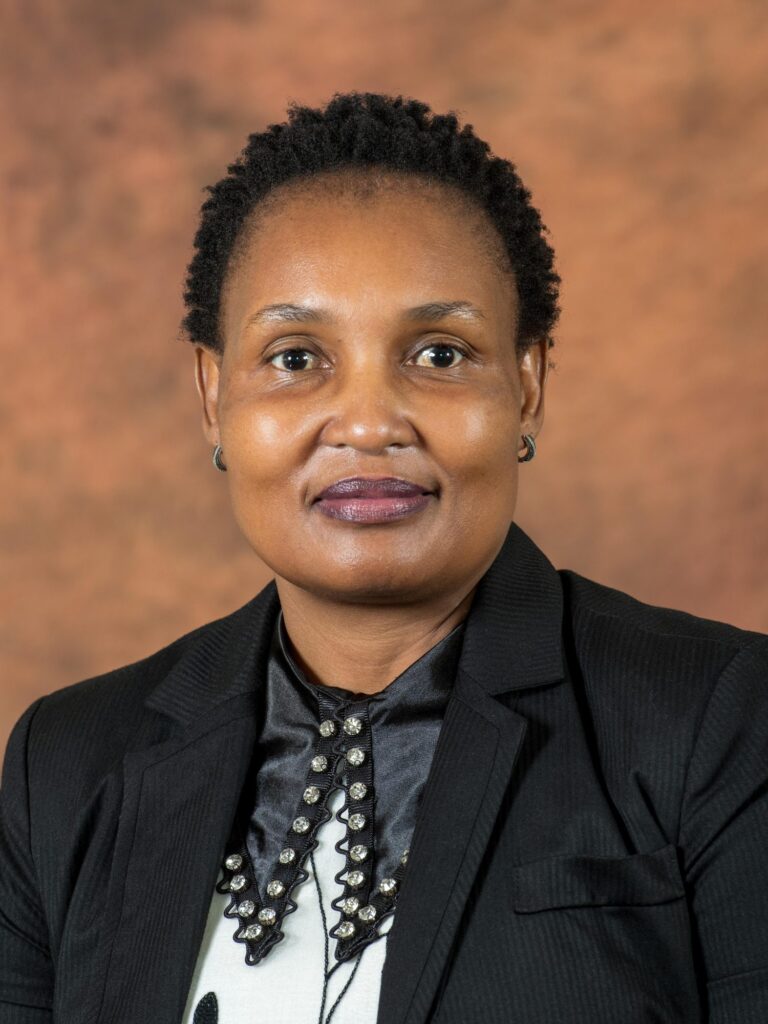
Thembi Nkadimeng of the African National Congress is 49 years of age and she holds a Bachelor of Philosophy in political studies. She has held various roles in local government and administration. She is known for her work in improving local and traditional leadership.

Gwede Mantashe of the African National Congress is 68 years of age and holds a bachelor’s degree in social work. Mantashe has a background in trade unions and mining

